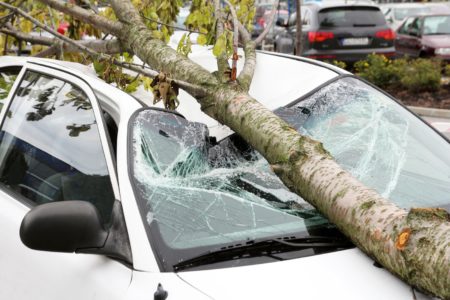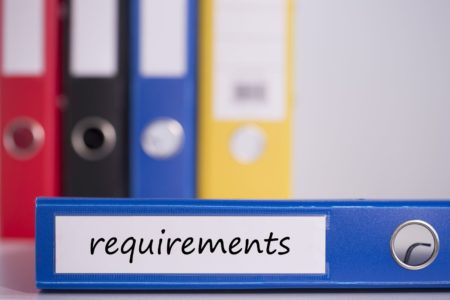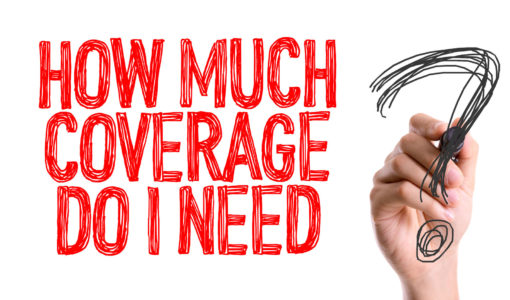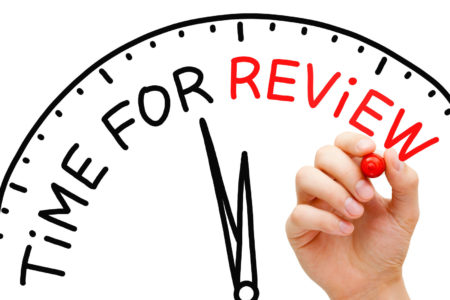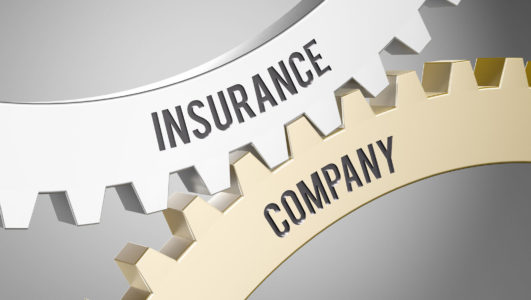Lease vs Buy: Car Insurance

Free Car Insurance Comparison
Compare Quotes From Top Companies and Save
Secured with SHA-256 Encryption
Brad Larson
Licensed Insurance Agent
Brad Larson has been in the insurance industry for over 16 years. He specializes in helping clients navigate the claims process, with a particular emphasis on coverage analysis. He received his bachelor’s degree from the University of Utah in Political Science. He also holds an Associate in Claims (AIC) and Associate in General Insurance (AINS) designations, as well as a Utah Property and Casual...
Licensed Insurance Agent
UPDATED: Jan 5, 2024
It’s all about you. We want to help you make the right coverage choices.
Advertiser Disclosure: We strive to help you make confident car insurance decisions. Comparison shopping should be easy. We are not affiliated with any one car insurance provider and cannot guarantee quotes from any single provider. Our partnerships don’t influence our content. Our opinions are our own. To compare quotes from many different companies please enter your ZIP code on this page to use the free quote tool. The more quotes you compare, the more chances to save.
Editorial Guidelines: We are a free online resource for anyone interested in learning more about car insurance. Our goal is to be an objective, third-party resource for everything car insurance-related. We update our site regularly, and all content is reviewed by car insurance experts.
UPDATED: Jan 5, 2024
It’s all about you. We want to help you make the right coverage choices.
Advertiser Disclosure: We strive to help you make confident car insurance decisions. Comparison shopping should be easy. We are not affiliated with any one car insurance provider and cannot guarantee quotes from any single provider. Our partnerships don’t influence our content. Our opinions are our own. To compare quotes from many different companies please enter your ZIP code on this page to use the free quote tool. The more quotes you compare, the more chances to save.
On This Page
- Car insurance is required for all drivers regardless of whether you lease or own the vehicle
- If you lease a car, you may have to buy additional insurance that those who own a car are not required to buy
- Shopping around is a great way to save money on your car insurance
When making the decision between leasing or buying a car, you may think that leasing a vehicle would eliminate the need to purchase car insurance. After all, why would you insure a vehicle that you do not own?
However, in most states, drivers must obtain a minimum amount of car insurance in order to comply with state laws, and this includes drivers who own their car as well as drivers who lease their car.
If you are caught driving without insurance, you could face penalties that include fines or even the loss of your license in some cases.
In fact, drivers who lease a car may actually be required to purchase even more insurance than those who buy a car.
With a closer look at the requirements that you may need to meet if you lease versus own a vehicle, you can better determine if you should lease or buy your next car.
Compare car insurance quotes today by using our free rate tool above. Just enter your zip code to begin.
Understanding Insurance Requirements for a Leased Car
To comply with state requirements in most areas, drivers must obtain a minimum amount of liability car insurance. Some states also require drivers to purchase a certain amount of personal injury coverage and other types of coverage.
Your auto lender that financed the lease may also have special requirements that you must meet that are not in place for car owners.
For example, your car’s lessor may require you to purchase collision or comprehensive coverage as well as GAP coverage.
– Liability Car Insurance
Because state laws typically hold drivers financially responsible for any damages they cause while operating their vehicle, they also mandate that drivers purchase a minimum amount of liability car insurance.
This is coverage that compensates others for the damages you cause while behind the wheel, but it does not pay for any of your own expenses. By requiring this type of coverage, the state is making drivers able to comply with the financial responsibility rules in place.
– Collision Car Insurance
If you are involved in an accident, you may find yourself in a situation where your leased car requires repair work. Auto lenders want to ensure that you have the financial ability to return the car to its previous condition to protect the value of the vehicle that you are leasing.
Collision insurance is therefore usually required on a leased car, and it pays for repair costs to your car if you are involved in an accident.
– Comprehensive Car Insurance
A collision is not the only type of damaging event that could affect the condition of your leased car. Comprehensive insurance covers repair or replacement costs related to the following:
- Theft
- Weather damage
- Vandalism
Most auto lenders require their leaseholders to purchase a comprehensive policy in addition to a collision policy.
– GAP Car Insurance
Car insurance typically only pays benefits up to the replacement value of your car, but depreciation can result in you owing more on your car than it is worth. Because of this depreciation, GAP insurance is a common requirement for leased vehicles.
This insurance coverage pays the difference between your car’s current replacement value and the outstanding loan or lease balance. GAP insurance may be provided by the lender in some cases, so you may not always have to add it to your insurance coverage.
GAP insurance is not usually a requirement if you buy a car with an auto loan. However, it can be beneficial as optional coverage regardless of how you finance your car.
With this in mind, you can see that this additional coverage for a leased car can make insurance on a leased vehicle more expensive, but this is not always the case.
FREE Car Insurance Comparison
Compare quotes from the top car insurance companies and save!
Secured with SHA-256 Encryption
Reviewing Insurance Requirements If You Purchase a Car
If you purchase a car rather than lease it, your car insurance requirements are somewhat different. You may still be required by law to purchase liability coverage. This is a standard requirement for all drivers.
In addition, if you finance your car with an auto loan, your lender may require you to purchase collision or comprehensive insurance. GAP coverage, however, is usually optional rather than required if you purchase your car.
If you pay for your car with cash, you are not required to meet any lender requirements. Likewise, when your car loan is paid off, you can downgrade coverage to a liability-only policy.
You could potentially save a small fortune on insurance if you opt for a liability policy. As you can see, buying a car may yield more affordable auto insurance in many cases.
Compare quotes from the top car insurance companies and save! Secured with SHA-256 Encryption
Determining the Requirements You Must Meet
There are many requirements that drivers must meet when leasing or owning a car, but these requirements can vary based on which state you live in as well as your lender’s requirements.
As a starting point, you need to determine what minimum amount of car insurance your state requires.
You also should review your lease or loan documents to determine what additional types of coverage and coverage limits your lender requires.
Take special note of the need to purchase GAP insurance or if it is included in your lease terms.
Buying Additional Coverage
Remember that you are financially responsible for any damages you cause while driving your car, and this includes any amounts that are not covered by your insurance policy regardless of whether you lease or own a car.
If you have $20,000 in liability expenses and only $10,000 in liability coverage, you will personally be held financially responsible for the remaining $10,000 in expenses.
Some drivers opt to purchase additional coverage. Your insurance coverage ideally should protect you against a worst-case situation.
Estimate how much an accident may cost you if you are involved in a multi-car collision. This estimation can give you an idea of how protective the minimum requirements are.
However, remember that your auto insurance policy will only pay benefits on your own vehicle up to its replacement value. It is generally not necessary to purchase coverage amounts for collision or comprehensive insurance that exceed the replacement cost of your vehicle.
Because the replacement cost may decrease each year, you should review your coverage periodically to ensure that it meets your current needs.
FREE Car Insurance Comparison
Compare quotes from the top car insurance companies and save!
Secured with SHA-256 Encryption
Weighing the Pros and Cons of Leasing Versus Buying
If you are trying to decide whether to lease or buy a car, the cost of insurance is a prime factor to consider. The lender’s insurance requirements for a car lease may be more significant and can make the required coverage more expensive.
However, many people who buy a vehicle with a car loan will benefit from this additional coverage as well. Therefore, you should consider some of the other factors associated with leasing versus buying.
For example, when you lease a car, you may have more affordable monthly payments, maintenance and repairs paid for by the dealer, and the ability to easily trade in the car for a new model within a few years.
On the other hand, with a lease, you always have a car payment, and you have mileage limitations.
When you buy a car, you can put as many miles on it as you desire, and you can eventually pay off the loan so that you have no car payments.
However, you also have to pay for all repairs after the warranty expires, and the monthly loan payment may be higher than a lease payment. You will need to review the pros and cons to determine which option is best for you.
Shopping for the Best Coverage
Regardless of whether you choose to buy or lease a car, it makes sense to shop around for a new auto insurance policy. The best ways to shop for a car insurance policy are to request quotes online, call the providers directly for a quote, or use an auto insurance broker or agent.
When you are requesting quotes, it is necessary to provide insurance companies with a wide range of information about you and the car that you want to insure. Some of these details include:
- Your age
- Your gender
- Where you live
- Your driving history
- How many miles you typically drive
- The make, model, year, and mileage of your car
- Any special safety or security equipment in the vehicle
Finding a Reputable Provider
When you are looking for auto insurance providers to get quotes from, confirm that they have a strong financial rating by checking the A.M. Best website. It is also wise to read consumer reviews about various providers before deciding to request a quote from them.
Also, compare different discounts offered by various providers to find the best deal possible.
If you do not maintain a minimum level of car insurance at all times, you could be in violation of state law regardless of whether you own or lease your car.
It is critical that you understand what the minimum requirements are that you must meet, and it is also important that you keep your coverage active at all times.
Compare car insurance quotes to narrow down your search to the companies that offer you the best rate. Use our free comparison tool below to get started.
FREE Car Insurance Comparison
Compare quotes from the top car insurance companies and save!
Secured with SHA-256 Encryption
Brad Larson
Licensed Insurance Agent
Brad Larson has been in the insurance industry for over 16 years. He specializes in helping clients navigate the claims process, with a particular emphasis on coverage analysis. He received his bachelor’s degree from the University of Utah in Political Science. He also holds an Associate in Claims (AIC) and Associate in General Insurance (AINS) designations, as well as a Utah Property and Casual...
Licensed Insurance Agent
Editorial Guidelines: We are a free online resource for anyone interested in learning more about car insurance. Our goal is to be an objective, third-party resource for everything car insurance-related. We update our site regularly, and all content is reviewed by car insurance experts.
